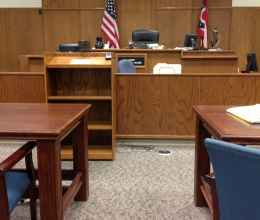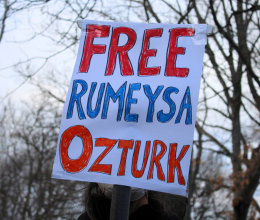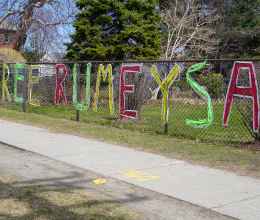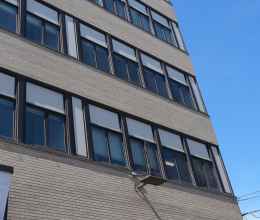
How efforts to suppress speech hurt our democracy
By Carol Rose, Executive Director of the ACLU of Massachusetts
The ACLU does not endorse or oppose candidates for elected office.
Freedom of speech, press, association, and petition are the foundation of a vibrant democracy. Debate and dissent are particularly essential in election years, including the right of people to express their views through peaceful rallies and protests.
But with Election Day around the corner, too many college and university administrators in Massachusetts are sending a message to students and faculty who seek to peacefully assemble that they are the “enemy within.” In so doing, they endanger not only higher education, but democracy itself.
Project 2025 and its adherents threaten to use the military to suppress demonstrations, to target political opponents, to dismantle higher education, and to shutter the free press. Candidate Trump has made no secret of his disregard for the rule of law and his intent to use the federal government, including the U.S. military, to target his perceived enemies – political rivals, journalists, and everyday citizens.
At the same time, authoritarians in Congress are pressuring colleges and universities to categorically silence student speech and protests. They threaten to withhold federal tax dollars for vital research and force university leaders to undergo hours of hostile questioning before congressional committees that show "no sense of decency, sir.”
Rather than stand up to these ideological bullies, too many college and university administrators are falling victim to this new McCarthyism. Since the start of the new school year, we’ve seen reports that dozens of Harvard students and faculty have been suspended from campus libraries for staging silent “study-in” demonstrations. University of Massachusetts Boston student reporters were allegedly blocked from photographing a demonstration. New speech restrictions at area colleges include requiring student activists to present their IDs even when they are not suspected of breaking any rules or laws, banning chalking on the sidewalk, and mandating advance registration for demonstrations without allowing exceptions for protests in response to newsworthy events – such as, for example, elections.
The First Amendment offers strong protections – even for speech that is unpopular, controversial, or deeply offensive. Public colleges and universities are subject to the First Amendment, and while private colleges and universities are not, their speech policies must be applied equally and fairly. When they impose rules that silence speech for one viewpoint, they silence speech for all.
University leaders also should consider not only what is lawful, but also what is wise. Colleges and universities play a critical role in our democracy by providing a marketplace for ideas and expression, where multiple viewpoints can be explored, and debate is encouraged. Universities have a responsibility to maintain an environment in which all students can thrive and learn. Indeed, a university’s mission is to prepare the leaders of tomorrow, and that means exposing students to challenging worldviews and competing -- even upsetting -- ideas.
Make no mistake: there is a direct link between efforts to limit free expression on campus and attacks on higher education itself. From the Project 2025 playbook to dismantle higher education to the House Education Committee’s inquisition of university leaders, authoritarians are pressuring Massachusetts colleges and universities to squash dissent and silence speech. This new McCarthyism must be resisted in our Commonwealth, where both higher education and free expression are central to our state’s identity and underpin Massachusetts’ historic role as a defender of democracy.
Recognizing the source of these pressures is the first step; resistance is the second. If we are serious about shoring up our state’s defenses against authoritarianism, it will take all of us – college and university leaders, lawmakers, teachers, students, civil rights organizations, and activists of all generations – to resist these efforts to suppress freedom of expression, including speech with which we may disagree. Our democracy depends on it.
Related content


Appeals Court to Consider Stay of Rümeysa Öztürk’s Transfer to Vermont
April 29, 2025
Appeals Court Must Reject Government’s Cruel Attempt to Keep...
April 25, 2025APHA v. NIH
April 24, 2025
Court Rules Rümeysa Öztürk’s Lawsuit Should Move Forward in Vermont...
April 18, 2025
Rümeysa Öztürk Denied Bond, Remains Unlawfully Detained in Louisiana
April 17, 2025
Court Rules Rümeysa Öztürk’s Lawsuit Should Move Forward in Vermont
April 4, 2025